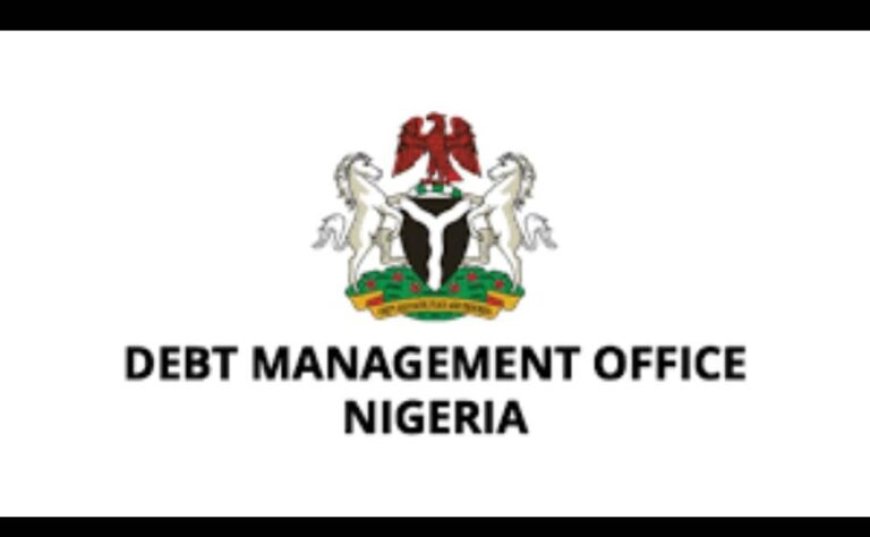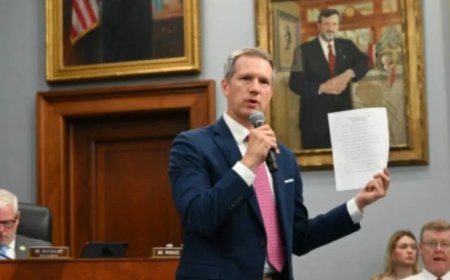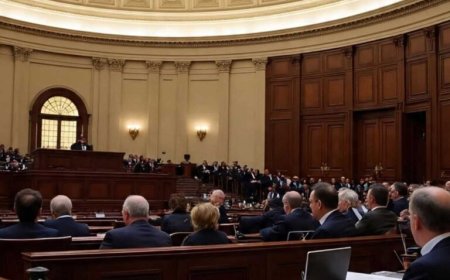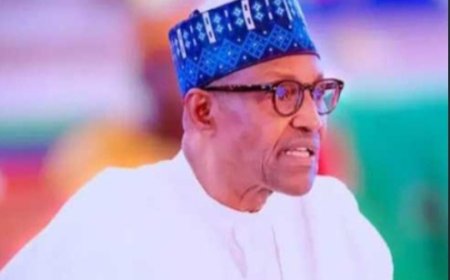Nigeria's Public Debt Rose From N97.34tn to N144.67tn, Representing 48.58 Per Cent Increase - Report

Israel Adeleke
OPEN TELEVISION NAIJA (OTN) News reports that the Debt Management Office, DMO, has disclosed that Nigeria’s total public debt has risen to N144.67tn ($94.23bn) as of December 31, 2024, representing a 48.58 per cent increase compared to N97.34tn ($108.23bn) recorded at the end of December 2023.
OTN News further reports that the body who disclosed this in its latest report on the country’s public debt profile, revealed that a quarter-on-quarter rise of 1.65 per cent from the N142.32 tn ($88.89 bn) recorded at the end of September 2024, highlighting the continuous increase in the nation’s debt burden during the final quarter of the year.
Furthermore, the report analysing Nigeria’s public debt on a year-on-year basis, showed an increase of N47.32tn, representing a 48.58 per cent rise from December 2023 to December 2024.
It noted that the surge in public debt was primarily driven by significant increases in both external and domestic borrowings.
The report added that Nigeria’s external debt increased by 83.89 per cent from N38.22 tn ($42.50 bn) in December 2023 to N70.29 tn ($45.78 bn) in December 2024.
Subsequently, the sharp rise was attributed to new external borrowings and the impact of naira depreciation, which raised the naira equivalent of dollar-denominated debt.
It also added that domestic debt rose by 25.77 per cent from N59.12 tn ($65.73 bn) at the end of December 2023 to N74.38 tn ($48.44 bn) in December 2024.
The Federal Government’s domestic debt component grew significantly from N53.26 tn to N70.41 tn, reflecting a 32.19 per cent increase.
This growth indicates the government’s continued reliance on local borrowing to finance budget deficits and infrastructure projects, the report analysed.
Meanwhile, the report stated that in contrast, the domestic debt owed by states and the Federal Capital Territory dropped from N5.86 tn to N3.97 tn, representing a decline of 32.27 per cent.
This reduction points to a more cautious approach by some subnational governments towards debt accumulation during the year, the report further noted.
Analysing on a quarter-on-quarter basis, the report explained that Nigeria’s total public debt increased by N2.35tn, translating to a 1.65 per cent rise from N142.32tn as of September 30, 2024.
The increase was driven by both external and domestic debt components. External debt rose by N1.4tn, moving from N68.89tn ($43.03bn) as of September 2024 to N70.29tn ($45.78bn) in December.
Furthermore, this was influenced by new foreign loans acquired in the last three months of the year, alongside the further weakening of the naira.
On the domestic front, debt rose slightly by 1.29 per cent from N73.43 tn ($45.87 bn) in September 2024 to N74.38 tn ($48.44 bn) by the end of December.
The Federal Government’s domestic debt increased from N69.22 N69.22tn to N70.41 tn within the quarter.
However, domestic debt attributed to states and the FCT decreased from N4.21 tn to N3.97 tn, reflecting a 5.69 per cent drop.
Subsequently, DMO, Noted that as of December 2024, external debt made up 48.59 per cent of Nigeria’s total public debt, while domestic debt accounted for 51.41 per cent, indicating a relatively balanced debt structure.
However, the rise in external borrowings points to a growing reliance on foreign debt to bridge budgetary gaps.
The breakdown of external debt shows that the Federal Government accounted for N62.92 tn ($40.98 bn), while states and the FCT held N7.37 tn ($4.80 bn).
In the domestic debt segment, the Federal Government held N70.41 tn ($45.86 bn), with states and the FCT accounting for N3.97 tn ($2.58 bn).
The rise in public debt has raised concerns among economic analysts regarding Nigeria’s fiscal stability.
The sharp increase, particularly in external debt, highlights the nation’s vulnerability to exchange rate fluctuations and changes in global economic conditions.
With the continued depreciation of the naira, the cost of servicing foreign debt could escalate, adding pressure on the country’s financial resources.
What's Your Reaction?
























































